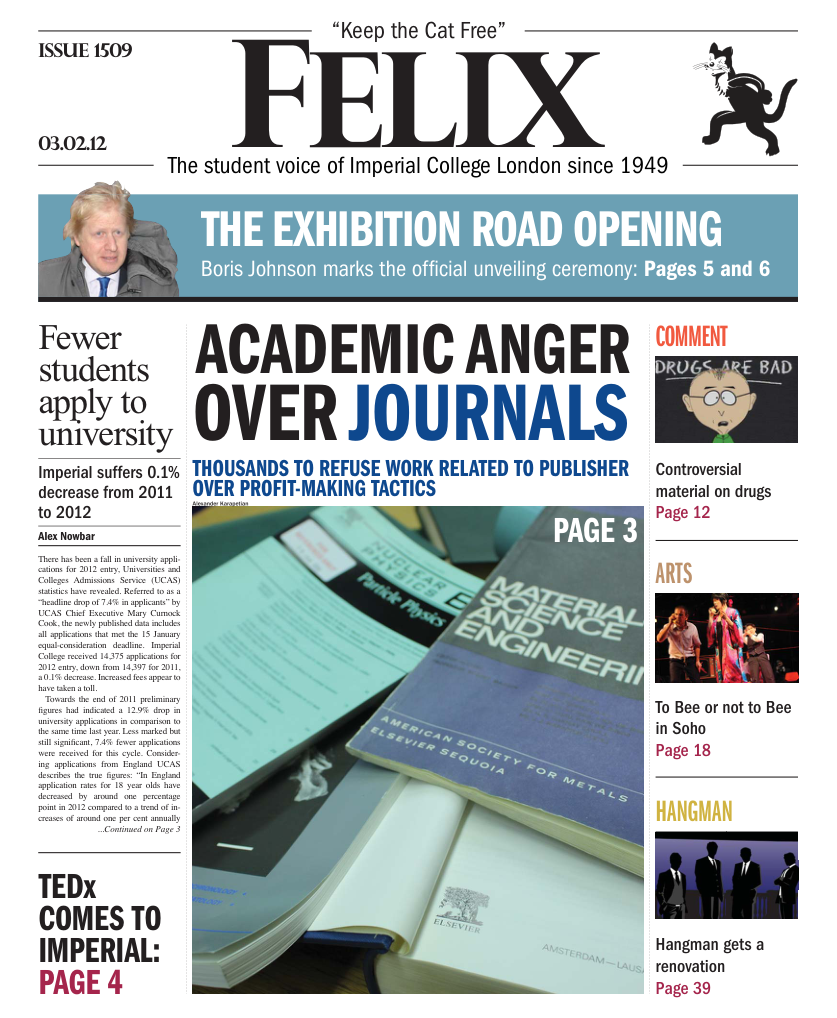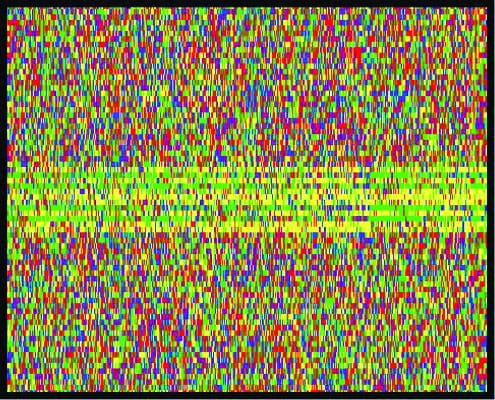Oddities of Physics
Hosted by Friends of Imperial College, last week's 'The Oddities of Physics' talk by postgraduate students was a success.
The SAF main lecture theatre was full to bursting last Wednesday evening, as Simon Foster and his troupe of postgraduate students put on an exciting and informative show on ‘The Oddities of Physics’. Guests were welcomed into the building with a display by the Imperial College Juggling Society, intrigued and unaware that a more fiery take on the display was on its way later in the lecture, to help explain special relativity...
Using balls of fire to help illustrate a light clock wasn’t the only exciting demonstration that had the audience gasping with awe, though. From resonating jelly to a levitating magnet, the sense of wonderment caused by each demonstration was palpable, not least from the groups of school children that the Friends of Imperial College had invited to the event. One postgraduate encouraged the audience to ‘fear the air around us’, with a startling and somewhat dangerous video he’d made, on Imperial soil, of an oil drum collapsing under atmospheric pressure, whilst Simon himself got the audience murmuring with curiosity simply by putting a heat-tech t-shirt in the microwave.
But it wasn’t all action, and the audience were equally enthused by the pithy explanations of other more subtle physical phenomena. Be they the time reversal symmetry of the movement of bacteria, Fourier transforms, or the mysterious quantum effects surrounding Planck’s constant, each thought-provoking question that was posed, (for who hasn’t at some point wondered what the world would look like if ħ wasn’t so small?), was matched in intrigue by its fascinating physical answer. Physics current sexiest topic, the Higgs Boson and the Large Hadron Collider, also got its due airtime, as did a simple but enlightening explanation of the Aurora Borealis, using the infamous, imposing-looking Van de Graaff generator.
The lecture was hosted by the Friends of Imperial College, an organisation dedicated to providing opportunities for the wider community to get involved in and learn more about any field of science, technology and medicine. It does this through the Imperial College network of staff, students and alumni, holding a variety of events throughout the year, from lectures to socials, keeping the public informed of and interested in the latest scientific advances. It also generously supports the Imperial College Student Opportunities Fund.







